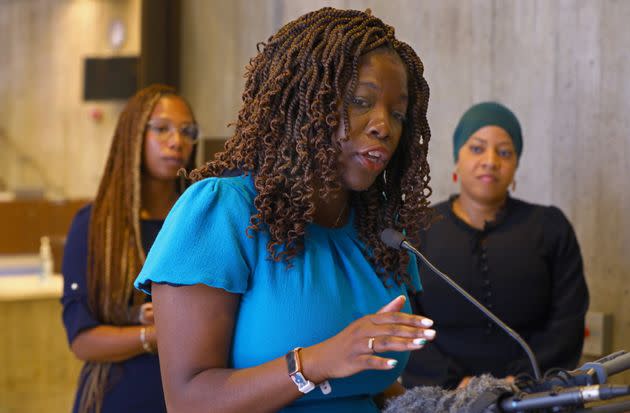Boston Apologizes For Slavery In City's Past

At a press conference outside the Christopher A. Iannella Chamber, Boston City Councilor Ruthzee Louijeune urges the Council to pass the resolution that the City apologize for Boston's role in the trans-Atlantic slave trade in Boston City Hall on June 15. (Photo: Pat Greenhouse/The Boston Globe via Getty Images)
Boston is apologizing for its role in allowing slavery in its city. calling it a move to “acknowledge the harm” it has done.
Boston City Council members, in a resolution on Wednesday, voted unanimously to pass the acknowledgement, condemnation and apology for the city’s engagement in the trans-Atlantic slave trade and its impact on Black people centuries later, the Boston Herald reported.
Aside from the resolution’s opportunity to reflect on the past, the city also moved to strip “prominent anti-Black symbols” from the city and to make efforts to help “repair past and present harm” to Black people, the newspaper said.
The resolution’s passage is “mostly symbolic,” NPR reported, and doesn’t offer to allocate reparations or funding to certain programs or areas of the city.
The passage comes roughly 239 years after Massachusetts barred slavery. Legislation like the fugitive slave laws allowed slaves seeking freedom in the state to be captured and sent back to their owners.
The city was a destination for ships traveling to the Americas in the slave trade.
The first documented slaves came to Boston from the Caribbean in 1638, according to the Boston Middle Passage project, and there were “nearly two hundred recorded slaving voyages” from the city starting in 1645.
Boston City Council Member Tania Fernandes Anderson said an apology for a “fundamental crime of enslavement of African people” helps put Boston in a place to create a more “fair and equitable city.”
This article originally appeared on HuffPost and has been updated.

